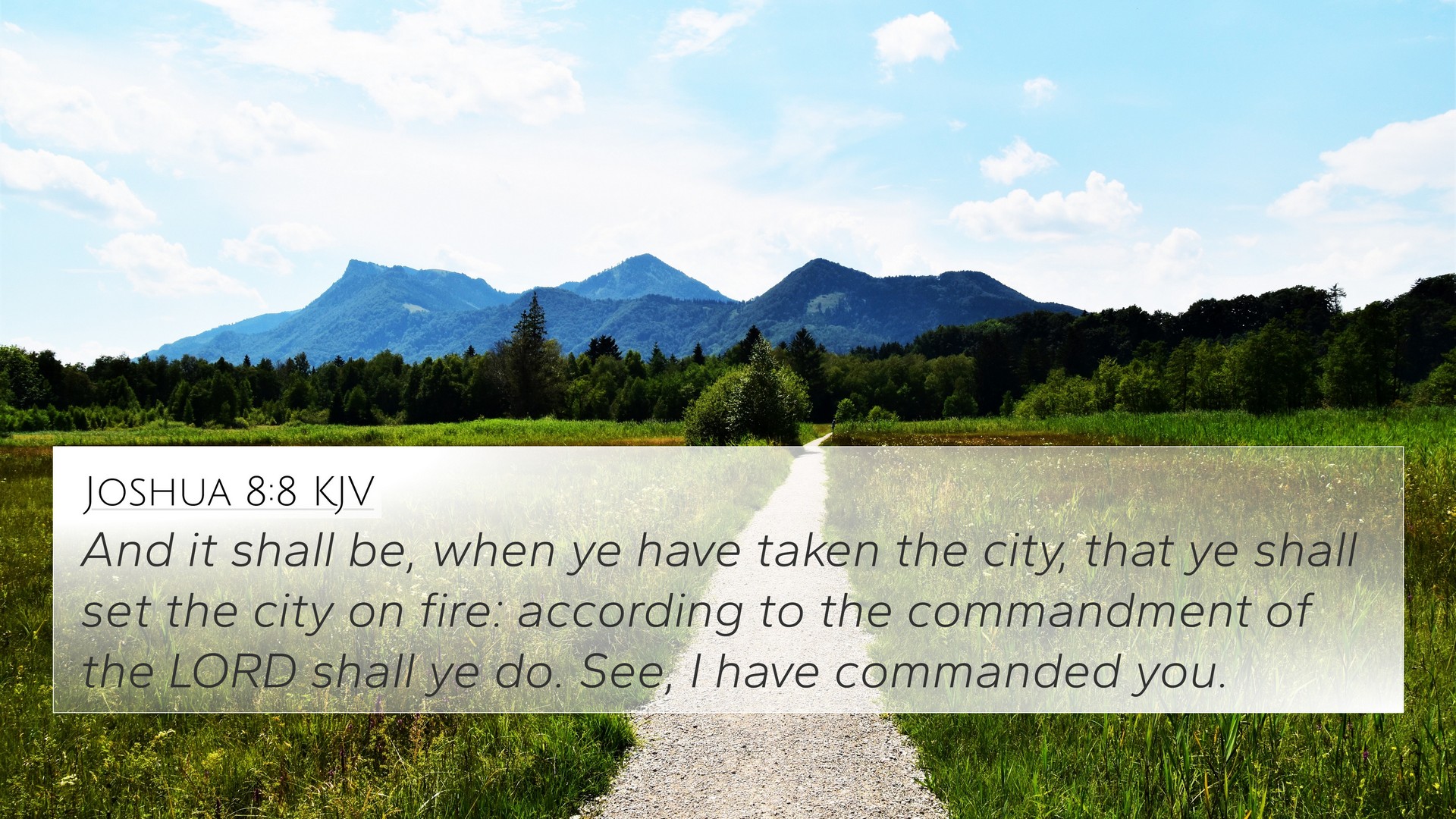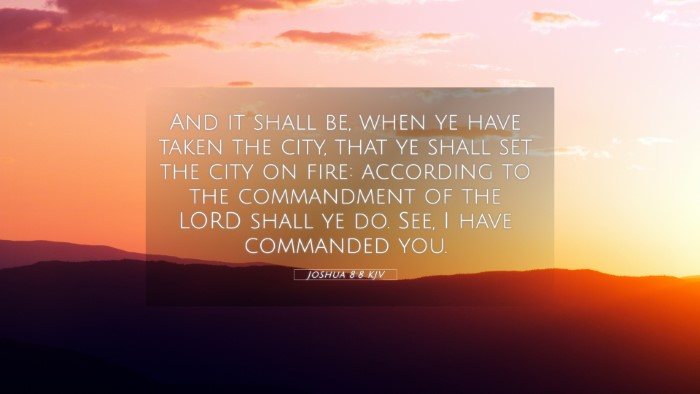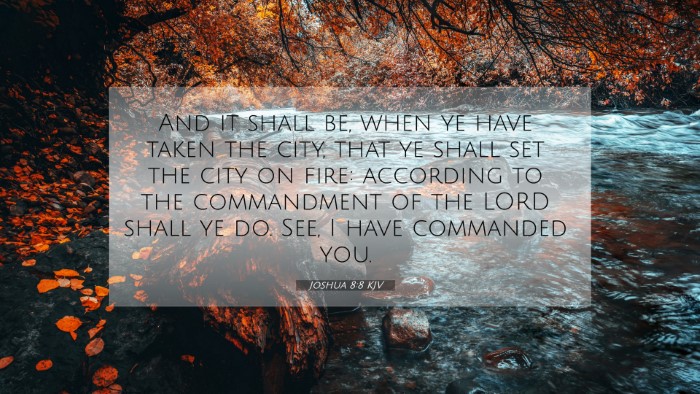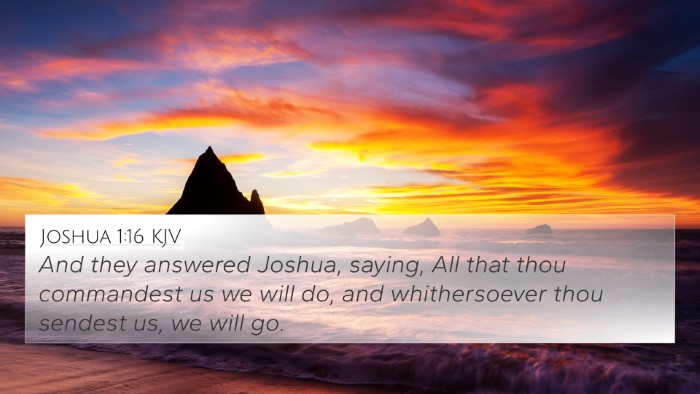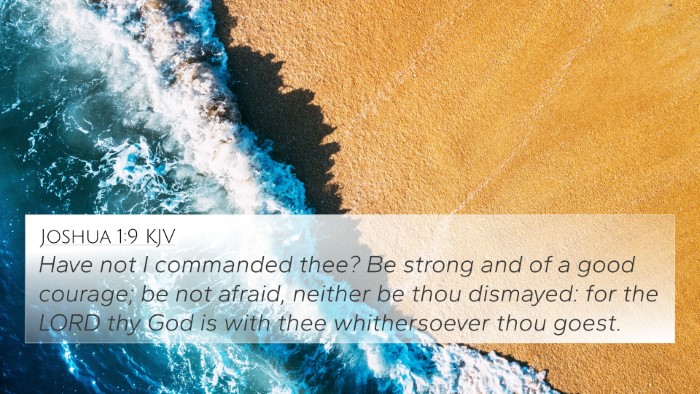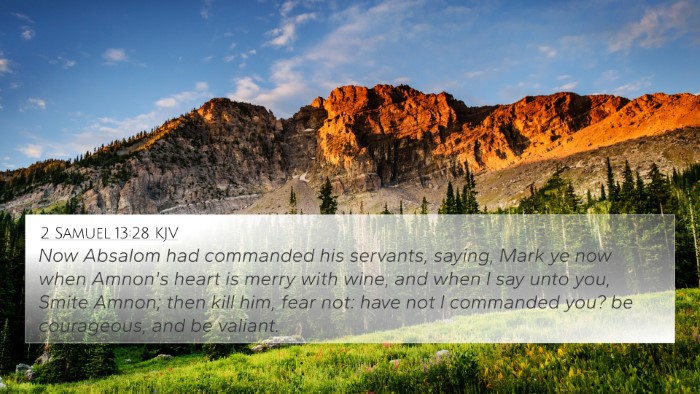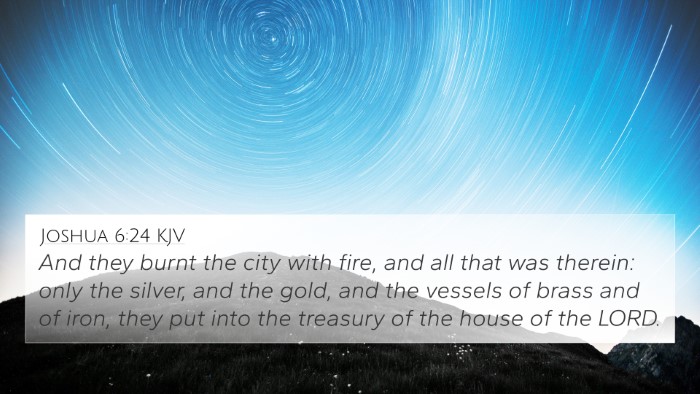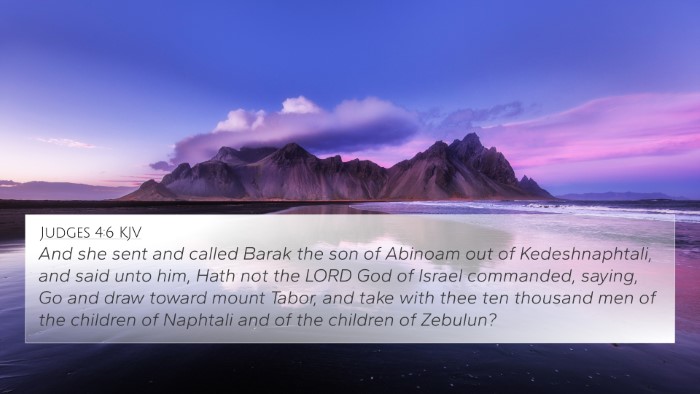Bible Verse: Joshua 8:8
("And it shall be, when ye have taken the city, that ye shall set the city on fire: according to the commandment of the LORD shall ye do. See, I have commanded you.")
This verse captures a pivotal moment in the conquest of Canaan, particularly in the context of Joshua's leadership and God's guidance. The directive given by God through Joshua illustrates the importance of obedience and divine command in the process of establishing Israel in the Promised Land.
Meaning and Interpretation
The significance of Joshua 8:8 can be explored through various public domain commentaries, including those by Matthew Henry, Albert Barnes, and Adam Clarke. The following insights provide a comprehensive understanding of this verse:
-
Divine Command:
Both Matthew Henry and Albert Barnes stress that the burning of the city was a specific command from God, emphasizing that Israel's success depended on their strict adherence to His instructions. This highlights a theme of obedience that runs throughout the biblical narrative.
-
Symbolism of Fire:
Adam Clarke notes that fire is often a symbol of God's judgment and cleansing. The instruction to burn Ai signifies the totality of God's judgment upon sin and disobedience. The act of setting the city ablaze indicates the irreversible nature of God’s decree against the enemies of Israel.
-
Historical Context:
The historical background provided by these commentaries reveals that this act was not only a military strategy but also a means of teaching Israel about the seriousness of sin and the consequences of disobedience. The destruction serves as a deterrent against future transgressions.
-
Faith in Action:
Matthew Henry emphasizes that this command required the Israelites to have faith in God's promise of victory and to execute His orders with diligence. The act of burning the city was both a literal action and a demonstration of their faith in God's sovereignty.
-
Preparation for Future Conquests:
Albert Barnes points out that the destruction of Ai prepares the way for the next phases of conquest. By obeying God, Israel secured a strategic advantage in their ongoing battle for the Promised Land.
-
Connections to Other Scriptures:
This verse has several cross-references that enhance its understanding. Notably, Deuteronomy 20:16-17, where God commands the complete destruction of certain nations, reflects the same theme of divine judgment.
Other references include Joshua 6:24, where Jericho is burned as a display of obedience, and Numbers 21:2-3, which connects to God's deliverance from enemies.
-
Lessons for Believers:
The modern application of Joshua 8:8 emphasizes the necessity for contemporary believers to follow God's leading in their lives. Just as Joshua obeyed God, believers are called to apply biblical principles in their own circumstances, trusting that God’s way is the best path.
Cross References
Here are some notable Bible verses that relate to Joshua 8:8:
- Deuteronomy 20:16-18: Command of complete destruction against certain nations.
- Joshua 6:24: Destruction and burning of Jericho.
- Numbers 21:2-3: Israel’s vow and destruction of cities during the wilderness journey.
- Revelation 21:8: The final judgment as a theme of divine destruction of the wicked.
- 1 Samuel 15:3: God's command to destroy Amalek, showing the seriousness of God’s commands.
- Romans 12:19: A principle of vengeance being the Lord's, paralleling God's judgment.
- Hebrews 11:30: Faith exemplified in the fall of Jericho, alluding to acts of faith against cities as in Ai.
- 2 Samuel 22:8-9: The imagery of divine intervention and destruction of enemies.
- Proverbs 10:28: The hope of the righteous leading to joy, whereas the expectation of the wicked shall perish.
- Psalm 37:38: The future of the wicked contrasts with the fate of the righteous, aligning with the themes in Joshua.
Conclusion
Joshua 8:8 is a profound verse that not only serves as a historical account of Israel's conquest but also conveys deep theological and moral lessons.
Through the insights gathered from Matthew Henry, Albert Barnes, and Adam Clarke, it becomes clear that this verse encapsulates the essence of obedience to God,
the seriousness of sin, and the call to faith in the ongoing journey of believers today.
